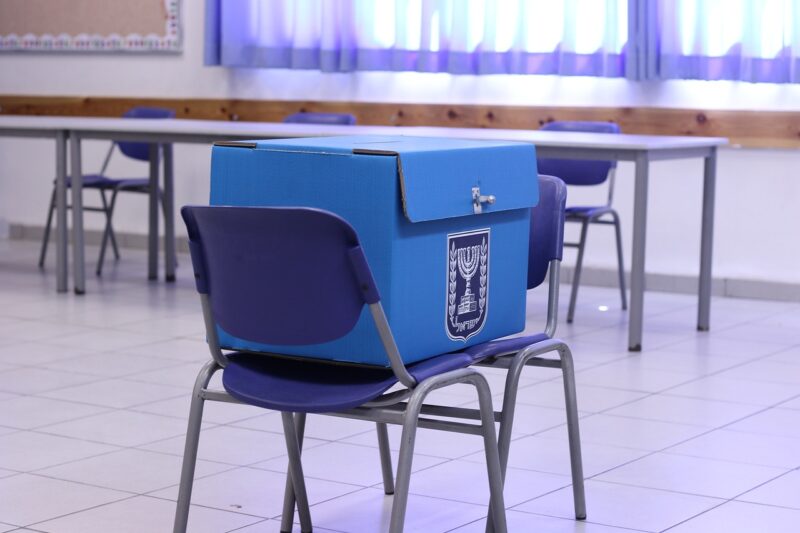How Elections Are Organized and Secured to Ensure Fair Voting
November 10, 2024

Elections are the cornerstone of democracy, embodying the fundamental principle of government by the people. However, for the outcome of elections to reflect the will of the voters accurately, meticulous planning and execution are crucial. In this article, we will delve into how elections are organized and secured, ensuring they are fair, transparent, and trustworthy.
1. The Importance of Election Organization
Elections do not just occur spontaneously; they are the result of extensive organization. The importance of a well-organized election process cannot be overstated. A poorly organized election can lead to confusion among voters, miscommunication, and disputes, potentially undermining the legitimacy of the electoral process. Here are some key components of election organization:
- Planning and Logistics: Organizations must establish clear timelines for the election process, from voter registration to ballot casting, counting, and announcing results. This planning includes logistics such as arranging polling stations, hiring staff, and ensuring adequate training.
- Outreach and Education: Voter education is critical to ensure that people understand the voting process. Campaigns must be put in place to inform the electorate about where, when, and how to vote, as well as the importance of their participation.
- Technological Integration: The use of technology can enhance the efficiency and accuracy of elections. This includes online voter registration, electronic voting machines (EVMs), and secure online systems for ballot counting and tracking.
While these elements are essential for basic organization, security comes in as an equally significant aspect of elections to safeguard against fraud, manipulation, and misinformation.
2. Key Security Measures in Elections
To ensure that elections are both secure and trustworthy, various measures must be implemented. Here are some of the most critical security strategies used in organizing elections:
- Voter Identification: Many jurisdictions require voters to present identification to prevent impersonation at the polls. Voter ID laws help secure the integrity of the voting process by ensuring that only eligible voters can cast their ballots.
- Secure Voting Equipment: Election officials must ensure that all voting equipment is secure and regularly audited. This includes using tamper-proof machines, ensuring that the voting software is regularly updated, and conducting routine tests to confirm functionality before elections.
- Ballot Security: Secure methods for ballot handling, counting, and storage are vital. Using sealed ballot boxes, employing surveillance at polling places, and having counts observed by bipartisan monitors help ensure that ballots are not tampered with or lost.
- Cybersecurity Measures: With the increasing digitization of elections, robust cybersecurity measures are imperative. This includes protecting voter registration databases and ensuring that electronic voting systems are fortified against cyber threats.
- Post-Election Audits: Conducting post-election audits can help verify the accuracy of results by comparing a sample of the ballots counted with the reported results. This process can identify discrepancies and bolster public confidence in the election outcomes.
These security measures serve to protect the election process from vulnerabilities and instill trust among voters that their voices are heard and counted.
3. The Role of Election Observers
Election observers, who can be domestic or international, play a vital role in the electoral process. Their presence serves several key functions:
- Enhancing Transparency: Observers provide an independent and impartial evaluation of the electoral process, which helps increase transparency and public confidence in the integrity of the elections.
- Reporting Irregularities: Any inconsistencies or potential fraud can be reported by observers, encouraging accountability among election officials and deterring misconduct.
- Recommendations for Improvement: Following elections, observers often provide recommendations for improving future electoral processes, contributing to ongoing enhancements in fairness and security in subsequent elections.
The presence of observers adds an additional layer of assurance that elections are conducted in accordance with established laws and standards.
4. Addressing Voter Concerns and Misinformation
In the age of social media, one of the greatest challenges in securing elections has become combating misinformation. Here are steps that election organizations are taking to address these concerns:
- Fact-Checking Initiatives: Authorities are collaborating with fact-checking organizations to debunk false claims about the electoral process. This helps ensure voters receive accurate information and understand their rights and responsibilities.
- Public Awareness Campaigns: Election officials are implementing campaigns to educate voters on how to identify and report misinformation. These programs highlight official resources where voters can verify information pertaining to voting and polling locations.
- Monitoring Social Media: By actively monitoring social media platforms, election officials can identify and address false information as it arises, swiftly providing corrections to the public to mitigate the spread of misinformation.
Addressing voter concerns and misinformation is essential for fostering a healthy electoral environment and maintaining trust in the democratic process.
5. Conclusion: The Path to Fair Elections
Organizing and securing elections is a complex undertaking that requires cooperation between governmental agencies, election officials, and the public. Ensuring fair voting depends on diligent planning, robust security measures, transparency, and combating misinformation. With continued commitment to refining these processes, we can uphold the fundamental democratic principle of free and fair elections.
By understanding how elections are organized and the efforts taken to secure them, voters can have greater confidence in the electoral process, knowing their voices count. As we move forward, it is crucial that we remain vigilant, informed, and engaged in the democratic process, ensuring that elections continue to reflect the will of the people.







